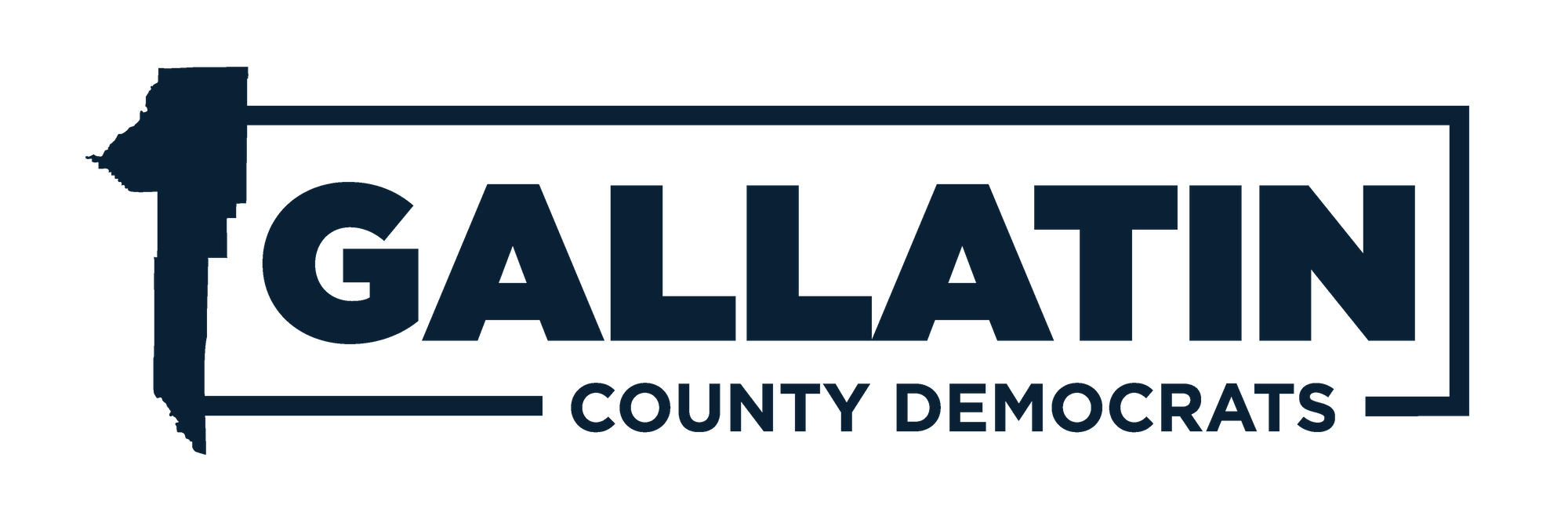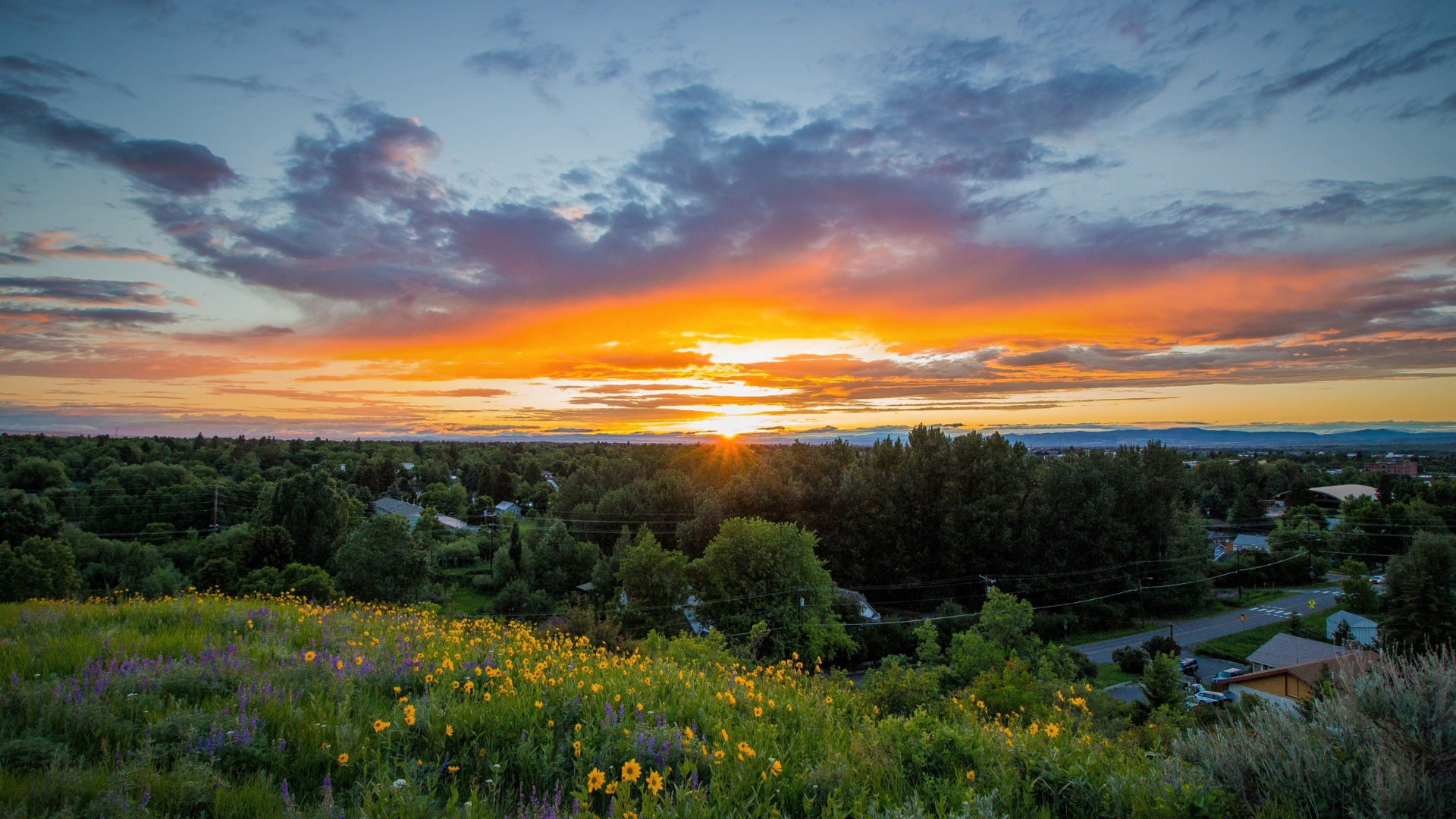Gallatin County needs to build 5,000+ units to house our current population, which is estimated to grow about 3% annually. Although home prices fell over the past year, a single-family home here is nearly double the national average. The Gallatin County Democrats believe safe, affordable shelter–like clean water and quality food–is a human right for all.
The housing shortage affects families, seniors, and our workforce, straining our healthcare and education systems, as well as the construction industry (i.e., those building more housing, expanding infrastructure). Basic societal functions are hindered by our lack of affordable, safe housing.
State- and local-level policy changes hope to ease the crisis, such as loosening development regulations, updating zoning policy, and limiting second-home, short-term rentals. But there’s much more work to be done, and much more planning required to make sure good growth happens. Some housing options have fallen by the wayside through the decades.
In this month’s blog, Natsuki Nakamura, a steering committee member with Bozeman DSA, shares about the need for publicly owned and developed, mixed-income housing, as well as how Gallatin County could benefit from a local housing authority:
Social Housing is a sustainable model of publicly owned and publicly developed mixed-income housing that remains permanently affordable. We are in a growing housing crisis and the market-based “solutions” we have relied on for decades such as tax credits and vouchers continue to subsidize private landlords and developers. It’s time to stop subsidizing private developers and start investing in a public good.
The first step to achieving Social Housing is establishing a Public Housing Authority (PHA). According to MT Code, a PHA is needed when there is a lack of safe and sanitary housing.
Next, the PHA can leverage the low-interest municipal bond market to set up a revolving housing production fund to sustainably develop housing. By removing the need for profits and by accessing a new and efficient funding source, the PHA can set rent at a truly affordable rate, without raising taxes or depleting limited funding pots for affordable housing. Local government already does a good job building schools and fire stations–but housing can pay for itself when affordable rents from mixed-income residents support maintenance.
By acting as the public developer, the PHA can bypass state-level restrictions to build the housing needed most in our community and lower housing costs by meaningfully increasing the supply of affordable housing. With or without increased federal or state support, the PHA can build housing around local priorities and needs–including developing in a way that meets crucial sustainability standards, and creating communities welcoming to workers, families, and pets–rather than hoping that others will do so.
As Zachary Marks–the Chief Real Estate Development Officer of the public housing authority in Montgomery County, MD that is already successfully implementing this model–states, “Our philosophy is that somebody is going to collect that market rent. It’s either going to be a private landlord who is not going to reinvest it in affordable housing, or it’s going to be us, in which case it will get reinvested in affordable housing.
Last year, in response to Bozeman’s housing crisis, local residents formed a city-wide tenants union, Bozeman Tenants United. Their first project–limiting short-term rentals–was successful, as the Bozeman City Commission voted last week to ban non-resident, short-term rentals throughout Bozeman (both in residential and commercial areas).
Member Elle Magaña Mireles describes the group’s approach to mobilizing renters and working-class residents, their focus on short-term rentals, and the City Commission vote:
Bozeman Tenants United (BTU) celebrates a pivotal victory in our ongoing pursuit of safe, dignified, and affordable housing within Bozeman. The successful passage of an amended Ordinance 2149 on Oct. 17th marks a significant milestone, albeit with a ‘grandfather clause’ that extends an exemption to approximately a hundred Type-3 short-term rentals already registered with the city. While this provision falls short of the robust short-term rental ban we initially aspired to, it unequivocally prohibits second-home Airbnbs across all zones of Bozeman, excepting those already registered in the city.
Our city-wide union views this win as a foundational stride toward safeguarding our community’s housing from the speculative grasp of Airbnb investors. Only a year ago, the notion of banning second-home, short-term rentals seemed improbable. This achievement stands as a testament to the tireless efforts of our diverse membership, including retirees, students, single parents, and hardworking tenants from all walks of life.
We mobilized through public testimony, town hall meetings, rallies, press conferences, neighborhood canvassing, and the gathering of over 1,100 petition signatures. Bozeman Tenants United amplified the urgency surrounding Bozeman’s housing crisis, and the need for solutions like 2149 to be implemented. This victory signals an era of renewed vigor in grassroots organizing efforts from poor and working class tenants in Bozeman. This win will propel us forward in strengthening our union and sustaining the struggle for safe, dignified and truly affordable housing for all.

